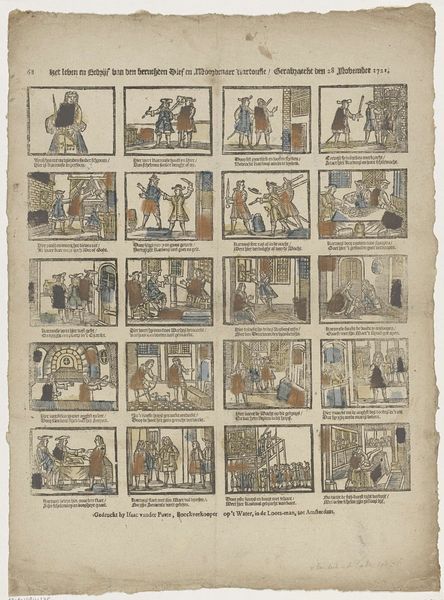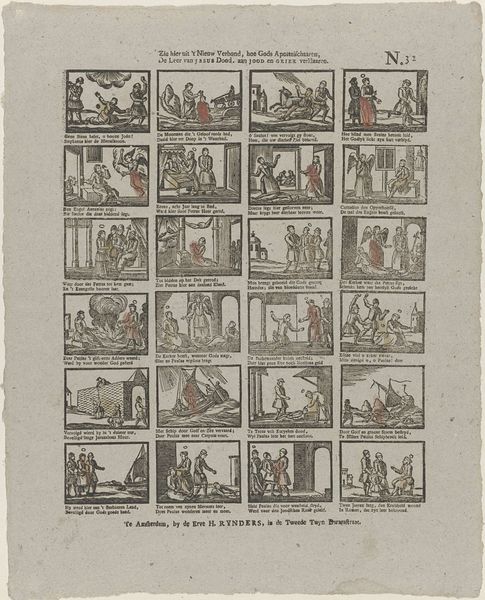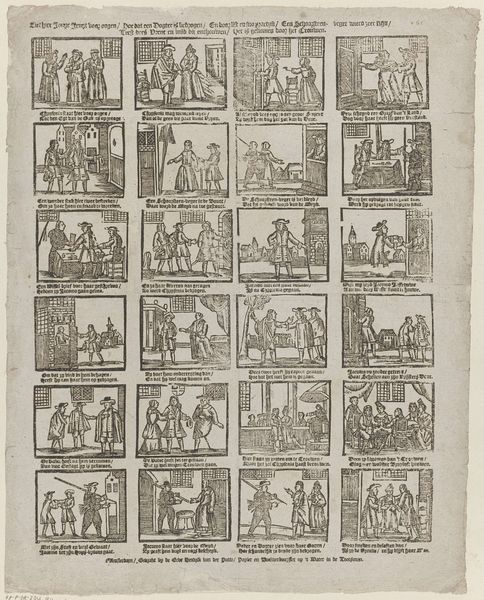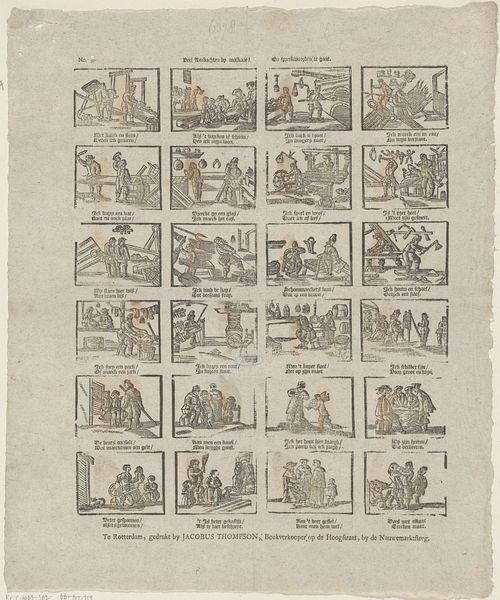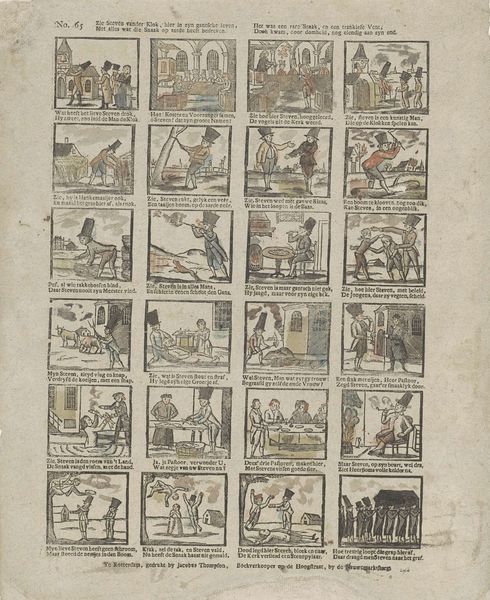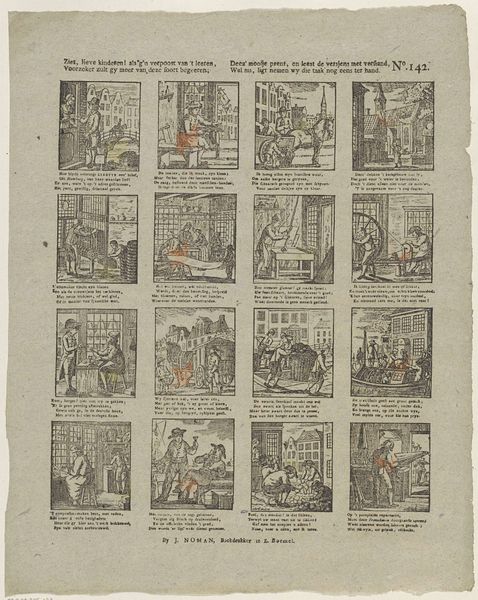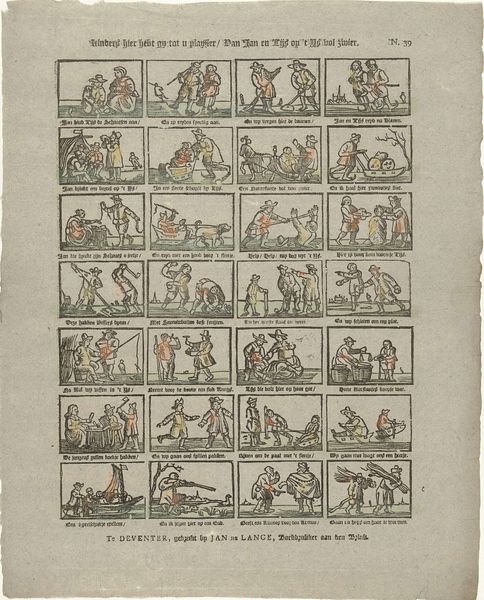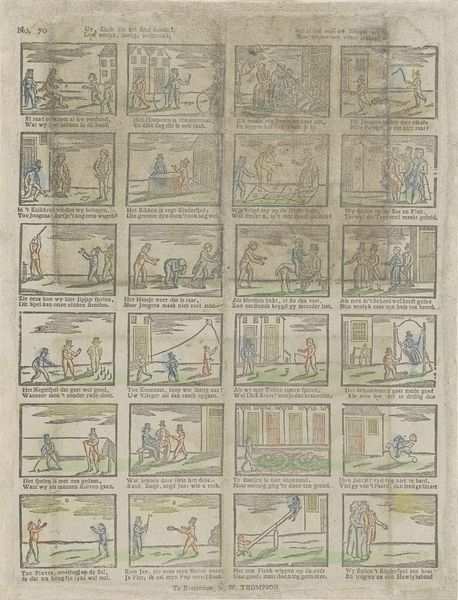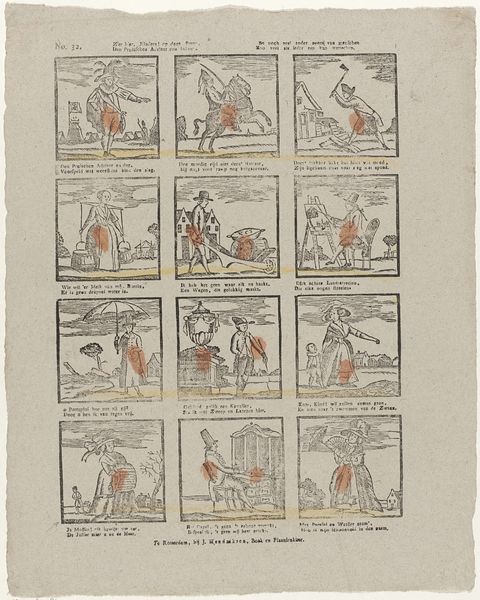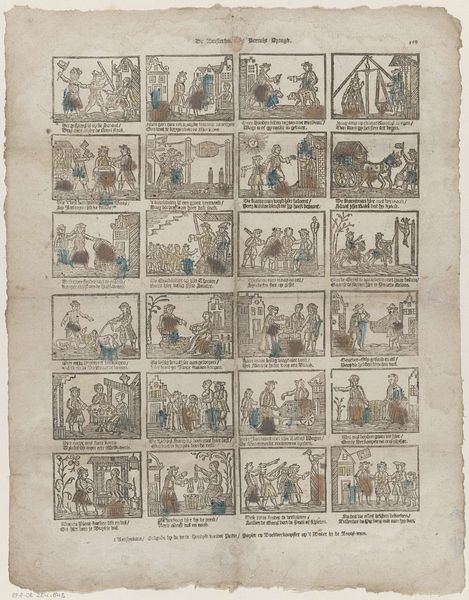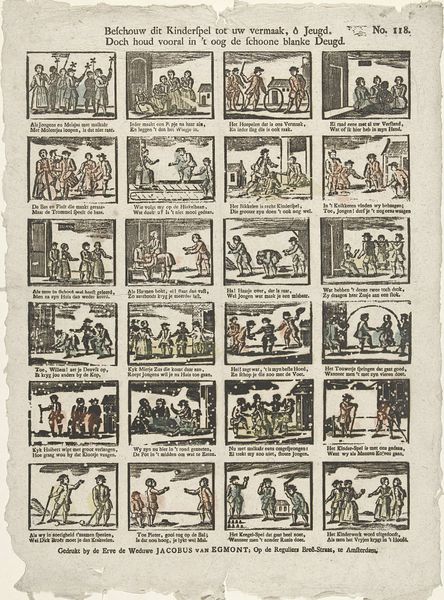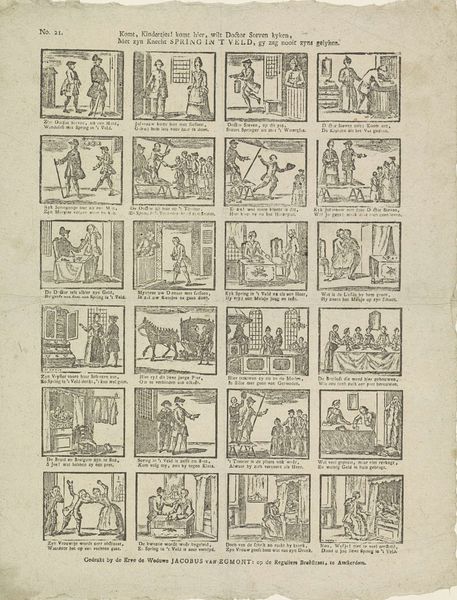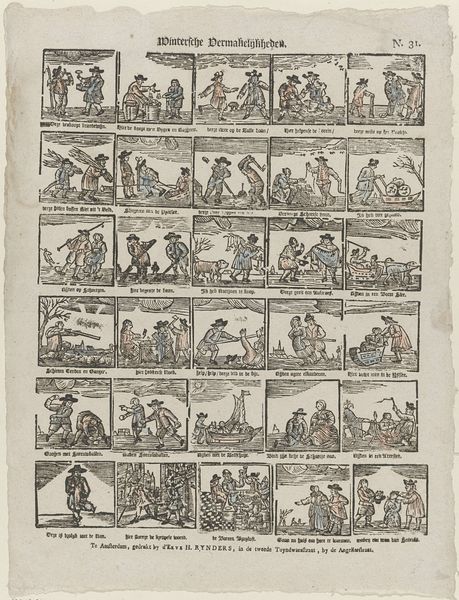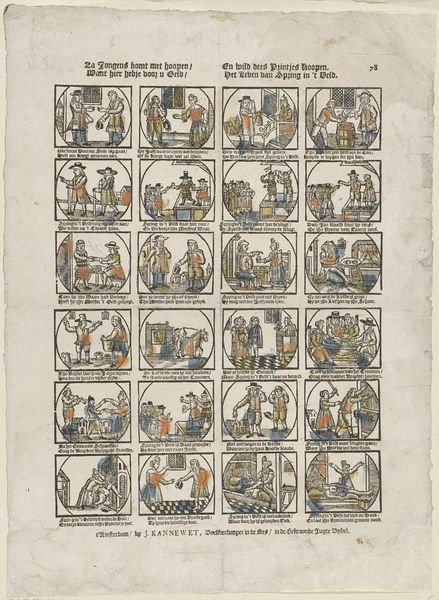
Zo Jongens komt met hopen, En Wild nu Printjes kopen: Want gy hebt hier voor klein Geld, 't Leve van Spring in 't Veld 1789 - 1855
0:00
0:00
graphic-art, print, woodcut
#
graphic-art
#
narrative-art
# print
#
woodcut
#
genre-painting
Dimensions: height 400 mm, width 320 mm
Copyright: Rijks Museum: Open Domain
Editor: This woodcut print, "Zo Jongens komt met hopen," created by David Du Mortier & Zoon between 1789 and 1855, depicts a series of small scenes. It gives off this feeling of everyday life in the past but they seem to narrate a sequence of actions... it is all quite fascinating! What do you make of it? Curator: Indeed! This print gives us a fascinating glimpse into popular culture and visual storytelling of the period. What strikes me is the overt commercial aspect. Notice the full title – it practically screams at viewers to buy these affordable prints. It frames the consumption of imagery as part of everyday life. Editor: I hadn't even noticed that. So this was like, street art? Commercials on paper? Curator: Something like that, yes! In fact, the printing process allowed images and narratives to reach a broader audience beyond the elite. These kinds of prints would be sold and circulated among the common people, embedding into popular consciousness specific representations and perhaps even shaping behavior. Where do you think such visual stories originated? Editor: Well, genre painting, as they call it, has often focused on scenes from daily life; from festivals to taverns, markets... and if you think about the title it all suggests common life. Do you think these are all different stages of "Leve van Spring in 't Veld?" Curator: That's an interesting observation. In addition to the print offering some insight to social events and culture in Leiden it would make sense for the scenes shown here to possibly all relate to "Spring in 't Veld's Life". Prints like these demonstrate a fascinating interplay between commercial interests, popular narratives, and social representation. It speaks to how images circulate within a community. Editor: This was incredibly insightful. Now, looking at the artwork through a more historical, almost societal lens, helps appreciate art beyond just aesthetics.
Comments
No comments
Be the first to comment and join the conversation on the ultimate creative platform.
